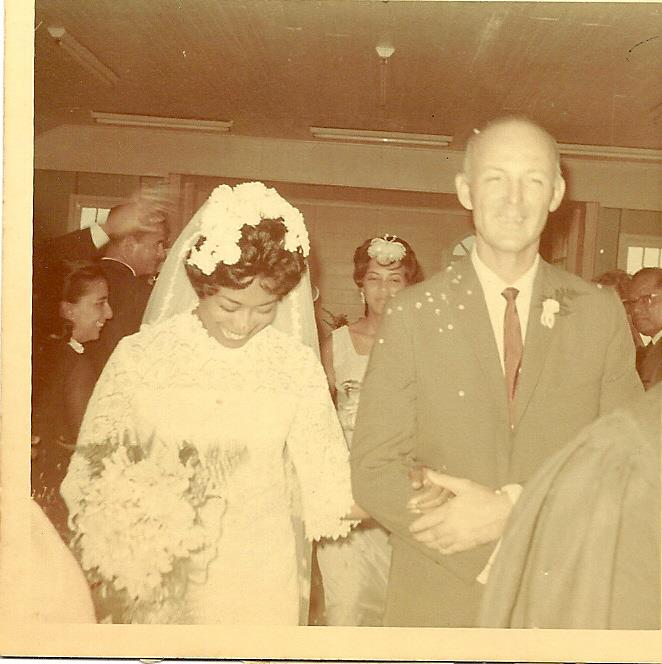
Black History Month is important for many reasons. For me one of the best things about it is that it reminds purveyors of pop culture to dust off archival footage and photographs that tell the African-American story, which is actually the American story.
I was flipping through the channels late Saturday morning (an often dispiriting exercise) when I stumbled upon a History Channel documentary about the civil rights movement. The segment focused on Mildred and Richard Loving, the Virginia couple who took their right to be married and live where they wanted seriously.
THIS IS GREAT: New York Times Slideshow “The Case of Loving v. Bigotry”
Mildred was black and Native American. Richard was white. They married in 1958, traveling to Washington, D.C. to do so since it was illegal for them to wed in Virginia.
In the footage shown by the History Channel the Lovings appear soft spoken and humble as their eldest son, smiling and laughing, capers around them. By all accounts they hadn’t sought a fight with Virginia, not to mention a Supreme Court ruling. Living in a county where racial blending had been common, they likely did not expect to be outed. They hoped to live quietly and raise a family together.
I couldn’t find much online about the three Loving children and how they lived as adults. Donald and Sidney died before middle age. Peggy is still alive and seems to have served as a sort of family spokesperson. The archival film shows them as happy, frolicking kids.
Ten years after the Lovings got married, and one year after they won their Supreme Court case, my black (Belizean) mother and white (American) father got married in Belize (then British Honduras) where, of course, interracial relationships were at the very foundation of an entire population. Granted, most of these relationships–like those that existed in most slave societies–were not “official.” There were few marriage certificates and plenty of unspoken rules.
So, I do think of my parents as pioneers in their own way. Like the Lovings, they did not consider themselves in these terms. The reasons for marrying had nothing to do with making a statement and everything to do with making a life.
Happy Black History Month.

sidney[’57-’10] obit: http://3.bp.blogspot.com/-sIphFk9_ces/T_F6rY2szZI/AAAAAAAArZ0/JUFRuc9JG7I/s1600/Picture+2.png donald died before him.